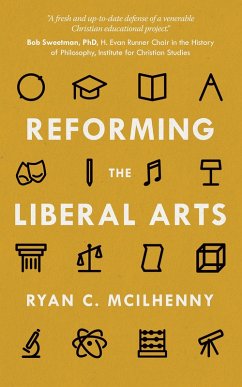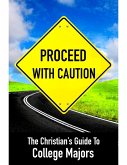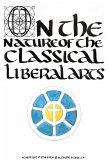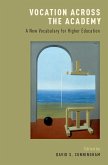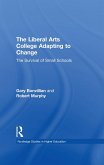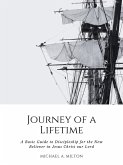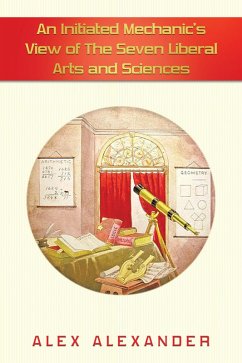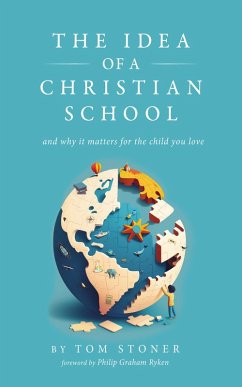Reforming the Liberal Arts, published on the 500th anniversary of the Protestant Reformation, provides a nuanced account of the religious nature of higher learning. Drawing together studies in neuroscience, contemporary mysticism, and best practices in higher education, McIlhenny artfully argues that Reformational Philosophy provides the most biblically robust defense of the critical importance of a liberal arts education in our age of incoherence.
More than simply offering a theoretical argument, the book contends that a liberal arts education provides a religious experience, a greater knowledge of self, the world, and God.
Praise for Reforming the Liberal Arts:
"This book sounds the major tones of a Reformed Christian Liberal Arts education, but augments it with zesty new notes: current research in brain studies, in the impact of technology, and in best educational practices. It is a chord anchored at the base in years of seasoned practice teaching and inspiring students."
Esther Lightcap Meek, PhD, Professor of Philosophy at Geneva College, Author of Contact With Reality: Michael Polanyi's Realism and Why It Matters and other books
"If the evangelical church wants to take seriously the challenges of secularism and its advances against the church, there is a pressing need for a pointed discussion about the intellectual formation of the next generation. McIlhenny's work offers an informed, broad, and insightful introduction to this much needed conversation. McIlhenny provides a fresh look at an ancient line of thinking, distills with care the key blessings in a Reformed liberal arts education, and shows how this education provides the foundation for a life well lived." Ben Merkle, DPhil, President of New St. Andrews College
"Ryan McIlhenny constructs a new argument for the value of liberal arts education, appropriating the contributions of neuroscience to an understanding of human beings and their development as persons. Crucial is the brain's orientation to collative structures that tend toward an integral horizon within which research and learning are to take place. At the same time he uses his own Reformed Christian emphasis on the 'heart' as the integral, God-ward concentration point of concrete human existence that helps to buttress the Christian understanding of the mystery of the human creature in God's world. The result is a fresh and up-to-date defense of a venerable Christian educational project." Bob Sweetman, PhD, H. Evan Runner, Chair in the History of Philosophy and Academic Dean, Institute for Christian Studies
More than simply offering a theoretical argument, the book contends that a liberal arts education provides a religious experience, a greater knowledge of self, the world, and God.
Praise for Reforming the Liberal Arts:
"This book sounds the major tones of a Reformed Christian Liberal Arts education, but augments it with zesty new notes: current research in brain studies, in the impact of technology, and in best educational practices. It is a chord anchored at the base in years of seasoned practice teaching and inspiring students."
Esther Lightcap Meek, PhD, Professor of Philosophy at Geneva College, Author of Contact With Reality: Michael Polanyi's Realism and Why It Matters and other books
"If the evangelical church wants to take seriously the challenges of secularism and its advances against the church, there is a pressing need for a pointed discussion about the intellectual formation of the next generation. McIlhenny's work offers an informed, broad, and insightful introduction to this much needed conversation. McIlhenny provides a fresh look at an ancient line of thinking, distills with care the key blessings in a Reformed liberal arts education, and shows how this education provides the foundation for a life well lived." Ben Merkle, DPhil, President of New St. Andrews College
"Ryan McIlhenny constructs a new argument for the value of liberal arts education, appropriating the contributions of neuroscience to an understanding of human beings and their development as persons. Crucial is the brain's orientation to collative structures that tend toward an integral horizon within which research and learning are to take place. At the same time he uses his own Reformed Christian emphasis on the 'heart' as the integral, God-ward concentration point of concrete human existence that helps to buttress the Christian understanding of the mystery of the human creature in God's world. The result is a fresh and up-to-date defense of a venerable Christian educational project." Bob Sweetman, PhD, H. Evan Runner, Chair in the History of Philosophy and Academic Dean, Institute for Christian Studies
Dieser Download kann aus rechtlichen Gründen nur mit Rechnungsadresse in A, B, CY, CZ, D, DK, EW, E, FIN, F, GR, H, IRL, I, LT, L, LR, M, NL, PL, P, R, S, SLO, SK ausgeliefert werden.

